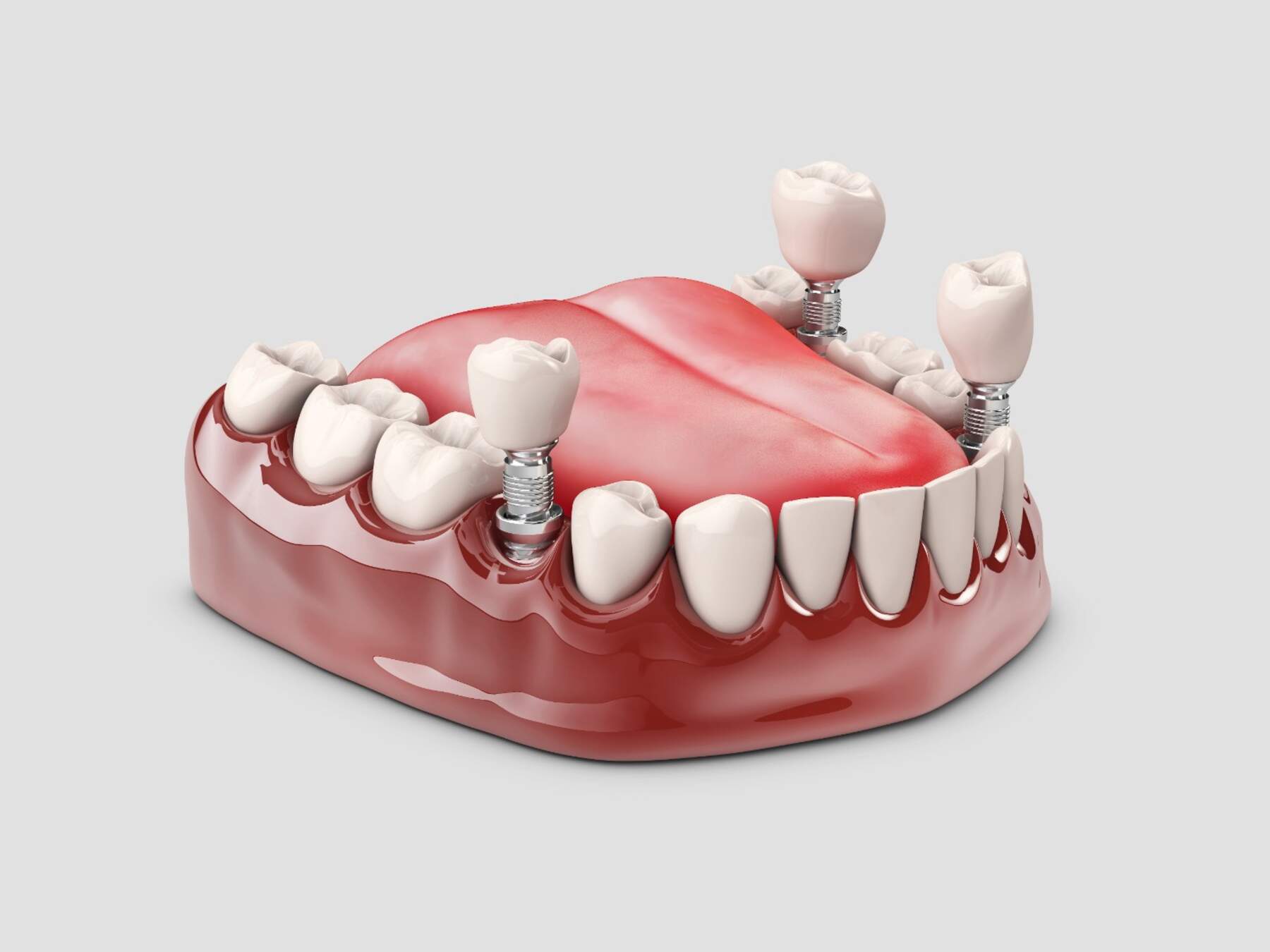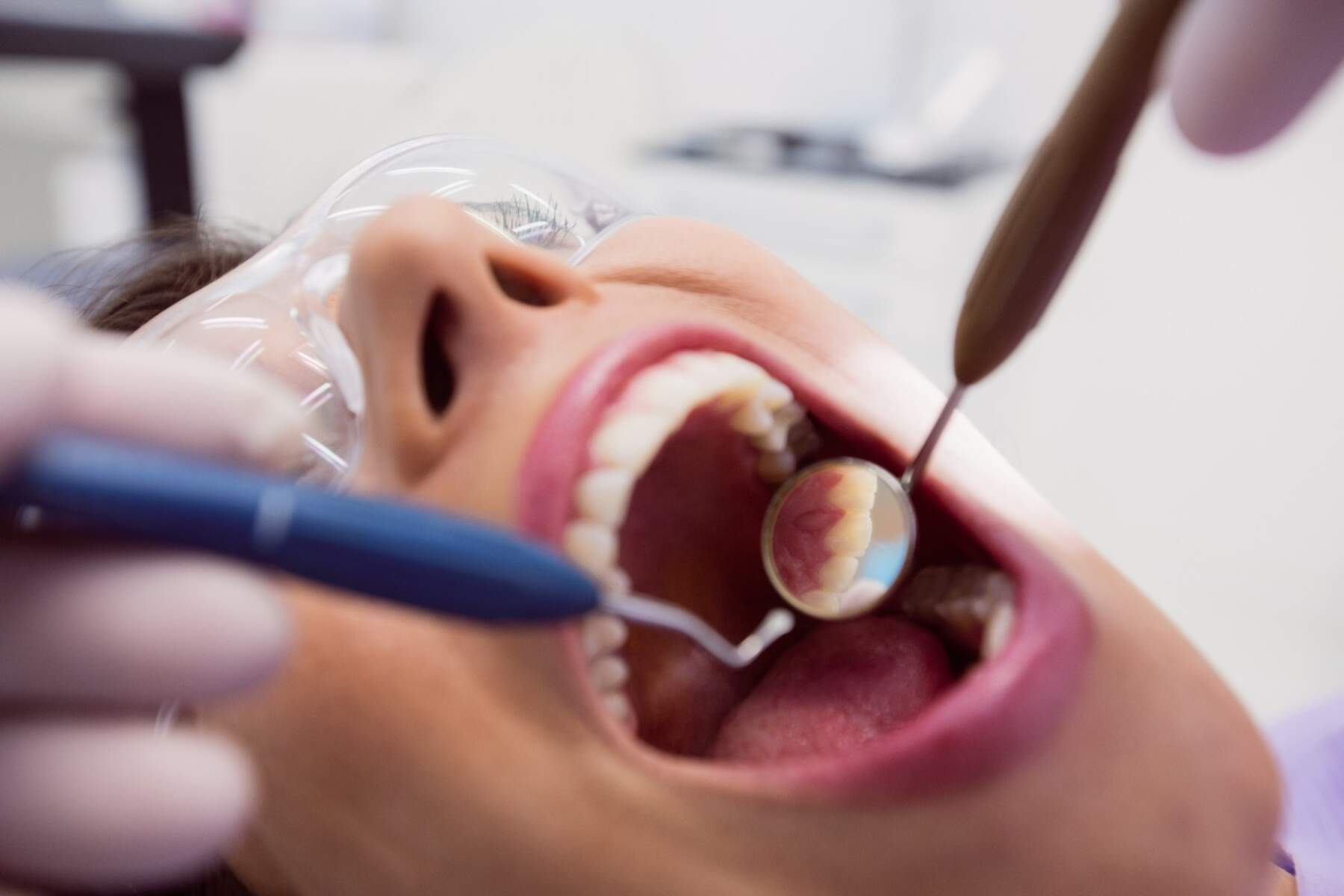If the dentist has recommended an All-On-4 dental implant as a possible treatment for repairing damaged or missing teeth, make absolutely sure you completely understand the procedure so you can decide if it is the best option for you. All-On-4 dental implants procedures are complex, but when performed by an experienced dental surgeon with advanced training in aesthetics and state-of-the-art dentistry, you can expect a radiant, new smile.
You desire a new smile that appears, feels, and functions like real teeth, and all-on-four dental implants, which can substitute the complete upper, lower, or both sets of teeth, can help you achieve that. And yet, prior to actually agreeing to any dental implant operation, enlighten yourself on other possible possibilities and then delve deeper into the specifics of your desired solution to guarantee you are making a well-informed treatment decision.
What exactly is All-On-4?
Unlike standard implants, which are used to substitute a single lost tooth, All-On-4 dental implants allow patients to restore a complete arch of teeth, either upper or lower. Four titanium implants are implanted into the jawbone to establish a strong foundation for a full arch dental prosthesis. All-On-4 implants are deliberately placed to protect and encourage natural bone growth, resulting in a successful surgery. All-On-4 implants require at least a six-month recovery period that includes a restricted diet and strict oral hygiene regimen. The ultimate replacement teeth are as realistic as it gets. All-On-4 implants are irreversible, fixed implants that are generally the costliest option for tooth restoration.
5 Things to Think About Before Getting All-On-4 Dental Implants
Irrespective of the source of your tooth loss – natural aging, periodontitis, or trauma damage — an All-On-4 dental implant could be a viable option for replacing your lost teeth and improving your lifestyle. The All-On-4 dental implant is comparable to a normal dental implant in that it is used to replace an entire arch of teeth. Your friends and relatives have them and enjoy them, and the dentist suggests them to you, yet you require more proof that they are good for you. Consider these factors, advantages and downsides, and questions to ask yourself and the doctor to get a better image of the All-On-4 dental implant treatment.
1. Advantages of All-On-4s
First of all and most importantly, it is critical to comprehend the advantages of an All-On-4 implant. Consult the dentist for a detailed list, however when weighed against other alternatives, the following top features frequently inspire people to choose the All-On-4 over dentures:
- Aesthetics. Tooth and bone loss can alter your face features and the way you look, making you appear haggard and sunken. All-On-4s bring back the original height between your upper and lower jaws, giving your lips and cheeks volume. Furthermore, your All-On-4 implants will appear, feel, and operate just like real teeth.
- Comfort. The new teeth are held by sturdy implants rather than your gums. This reduces the possibility of contact sores or irritation marks on the gums. Also, it offers a solid basis, reducing slippage when eating or talking. If enough time has gone by and your mouth has healed completely, you will hardly notice that you have new teeth.
- Durability. The high-quality titanium All-On-4 dental implants enable bone to develop all around implant whilst conserving the existing bone, maintaining the jaw robust and the implants secure. All-On-4 implants are composed of extremely durable materials such as porcelain or acrylic, and with good maintenance and frequent dental checkups, they can be a lasting fix that endures for generations.
- Freedom of food choice. All-On-4s, more so than dentures, have no impact on how well you’re able to chew or taste your food. With an All-On-4, you can eat just about anything – and love it.
- Restored confidence. Several patients note that All-On-4s give them a sense of security they haven’t felt in a long time. As their teeth deteriorated or they tried to acclimatize to dentures, they became self-conscious and their morale dwindled. All-On-4 implants improved their speech intelligibility and made them smile. Following an All-On-4 implant operation, patients described feeling cheerful and confident.
2. The Price of All-On-4 Dental Implants
It is critical that you are pleased with the All-On-4 surgery and its accompanying costs, but pricing ought not to be your only consideration. If you have dental insurance, check with your insurer to see if it includes dentures or an All-On-4 implant.
Many insurance companies may consider implants to be cosmetic thus refusing to cover them, yet might cover a few of the underlying treatments. To plan for financing, request an exact breakdown of all charges from the dentist and develop an initial dental budget. The total cost of your All-On-4 dental implants will be decided by a variety of variables, such as the type of prosthetic and the price of accompanying treatments including such extractions or bone grafts. Consult with the dentist about possible funding sources and payment plans to assist with paying for your All-On-4s.
3. Eligibility and Health Concerns
Dental implants are not suitable for everyone. Optimal candidates are in excellent physical condition and can withstand anesthesia and surgery. Some medical issues and drugs may preclude you from being a candidate for an implant. If you smoke or suffer from a chronic health problem, consult with your doctor to see if you are a match. Even though underlying medical issues such as heart disease or diabetes may not immediately exclude you, the dentist may require medical clearance before accepting you as an implant candidate.
Candidates for All-On-4 additionally need to have excellent dental condition, including enough jawbone integrity and healthy gums. Regardless if you have lost bone mass due to losing teeth, the dentist may well be able to use the available bone mass to establish a firm foundation with implant placement. Another alternative for strengthening the jawbone is bone graft surgery.
Bruxism, also known as clutching, crushing, or grinding your teeth, can result in failure due to the constant pressure imposed on your teeth. To achieve a safe and effective result, be open and honest with your dentist about any health concerns.
4. The Dentist’s Experience and Chairside Manner
It is critical that you feel at ease speaking with the dentist and that you have faith in their expertise and competency. Do your homework before committing to a major implant operation.
Examine your dentist’s qualifications and education, see the practice’s webpage, and seek referrals from relatives or close friends. Ask the dentist or dental expert questions to measure your trust in their expertise and satisfaction level with them.
Here are a few examples of questions:
- Do you have any reservations about my health?
- How many All-On-4 implants have you performed yourself?
- How successful has this procedure been for you?
- What are your thoughts on my seeking a second opinion?
- How do you deal with emergencies?
- Will the process be painful?
- What is an average post-implant recovery and treatment plan?
Use the appointment time to seek answers to your questions and to express any anxieties or worries you may have. During the meeting, the dentist should discuss all of your questions without dismissing them. If you are planning on replacing all of your upper or lower teeth, or acquire a full set of replacement teeth, your restoration surgeon must make you feel comfortable. Whenever you walk away from your session, you must know if this restoration dentist is ideal for you.
5. Observance of the Treatment Plan
If you are having all of your upper or lower teeth replaced, or if you are getting a full set of replacement teeth with an All-On-4 implant, the restoration dentist must spend quality time explaining the procedure to you and developing a detailed treatment plan. The treatment plan will be the most useful tool in determining your individual dedication to the operation. Knowing the dental implant procedures recommended by the dentist, as well as the projected timing for those treatments, recuperation and maintenance, and expenses, will provide you with a clear picture of your dental demands and ought to be part of the overall treatment plan. The strategy should not be abandoned on the day of operation. A stringent follow-up schedule, thorough management of recovery and dental health, clear long-term dental hygiene habits, and unique dietary needs are all required for a successful All-On-4 implant. The plan ought to incorporate directions for each of these items.
How Long Can All-On-4 Be Used?
All-on-4 implants have shown to be long-lasting. In fact, statistics suggest that with proper care, they can endure for 20 years or longer. The implant posts should never need to be replaced; nevertheless, your denture will wear out with time. You may need changes over time, but 99% of the time they will survive for 10 years or longer.
What can I do to assist All-On-4 Endurance?
Choose a knowledgeable dentist to manage your treatment to give your new smile the best chance of success. Following receiving your denture, it is critical that you practice good dental hygiene at home and see the dentist at least two times a year for a cleaning and examination.
Maintaining a balanced diet and avoiding anything that may result in problems, such as smoking or using your new teeth as utensils, will help to lower your chance of potential dental implant failure.
What Can I Anticipate Following All-On-Four Surgery?
The most recent breakthroughs in dental implant technology have allowed people to get back the like-natural performance and physical look of the jaw and teeth. Leading dental professionals make significant efforts to reduce the degree of pain that patients feel during and after the procedure:
- There are several anesthetic alternatives available to lessen or eliminate patient discomfort during the treatment.
- Precautions taken to reduce the risk of post-procedure bleeding, infections, inflammation, and difficulty.
- Throughout regular follow-up appointments, the healing process is monitored.
How Long Does It Take For Gums To Heal Following All-On-4 Implants?
Au contraire to traditional dentures, that can take up to 8 months to heal and up to twelve months to acclimate to, All-On-4 dental implants heal much faster. For instance, you quickly gain steadiness, and the recuperation process starts right away. Most patients can resume their typical activities within a couple of days of having the implants installed. You will, though, ought to take specific measures when you arrive home following the surgery to prevent aggravating the healing area. Because your mouth continues to be sore, you must be cautious not to aggravate the surgery sites:
- Do not utilize a water rinse the very first day, although you might use the medicinal rinse advised by the dentist to rinse the sore regions; if there is any bleeding the next day, regardless of whether it’s minor, rinse your mouth with a homemade salt water solution up to 3 times per day.
- Avoid touching the vulnerable regions to avoid irritation.
- Brushing is advised, as long as it is done gently and thoughtfully with a soft toothbrush.
- Avoid smoking because it will only impede and prolong the healing process.
What Can I Eat Following All-On-4?
For the three months following the treatment, the dentist will recommend you to adopt a soft and liquid food regimen. It is critical that you follow these guidelines because the first three months after the treatment will be spent recuperating and incorporating your dental implants. Your temporary dental bridge, you’re going to wear until your permanent dental bridge is linked to the implants, is not intended to enable you to chew tough foods.
Is it comfortable to wear All-On-4?
If you have ever had to wear traditional dentures, you will quickly realize that All-On-4 dental implants are a significant advance in much more aspects than one. They are, for starters, safe and secure. Next, you will be able to resume your normal activities shortly after the treatment. Even at this beginning of the procedure, several patients are capable of functioning normally with a few adjustments to their typical routine.
Lastly, All-On-4 dental implants do not necessitate extensive maintenance and upkeep: basic dental hygiene is all that is required. Because they do not apply pressure on the gums like traditional dentures, All-On-4 dental implants are meant to be pleasant. You will soon be in a position to bite with greater force and appreciate the typical sensation of eating hot or cold meals with all of their flavors again.




